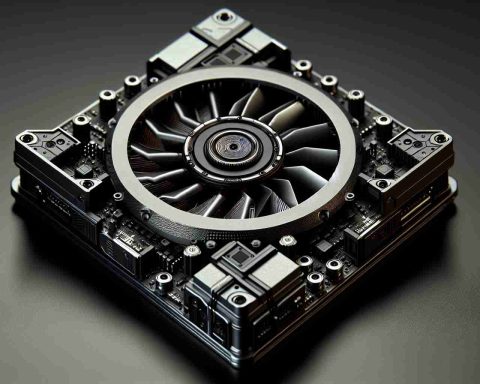In an intriguing development for the tech industry, Nvidia is in talks with Taiwan Semiconductor Manufacturing Co. (TSMC) to produce their cutting-edge Blackwell AI chips at TSMC’s upcoming Arizona facility. This strategic shift could significantly diversify Nvidia’s supply chain amidst the increasing demand for AI hardware, which until now has been exclusively manufactured at TSMC’s Taiwanese plants.
TSMC’s Arizona factory, prepared to commence production in 2025, marks a pivotal advancement in the semiconductor landscape. The expansion offers Nvidia a critical opportunity to tap into the American market, aligning with broader U.S. ambitions to enhance domestic semiconductor manufacturing.
Despite these promising plans, the Arizona plant faces hurdles. A critical stage of the chip-making process, CoWoS packaging, cannot be completed in the U.S. and will necessitate shipping the chips back to Taiwan for final processing. This underscores the complex nature of fully relocating advanced chip manufacturing from Asia to the United States.
Adding Nvidia to TSMC’s roster of Arizona clients, which already includes tech giants like Apple and AMD, emphasizes the importance of this move. Situated against a backdrop of geopolitical tensions, TSMC’s Arizona site represents a strategic shift toward a more globally distributed manufacturing model.
The drive for U.S. semiconductor growth is supported by initiatives like the Chips Act. The Biden administration’s incentives aim to catalyze tens of thousands of new jobs and draw billions in private investments to the region. Meanwhile, Nvidia’s growth trajectory remains robust, with a stock price surge driven by unprecedented demand for its AI processors.
Revolutionizing AI Chip Production: Nvidia and TSMC’s Ambitious U.S. Expansion
In a pivotal development for the semiconductor industry, Nvidia’s collaboration with Taiwan Semiconductor Manufacturing Co. (TSMC) to produce Blackwell AI chips at TSMC’s upcoming Arizona facility could mark a transformative shift in global chip manufacturing. This initiative dovetails with strategic efforts to diversify Nvidia’s supply chain, traditionally reliant on TSMC’s Taiwanese facilities, and meet the swelling demand for AI hardware.
Innovations in Semiconductor Manufacturing
TSMC’s Arizona factory, slated to begin operations in 2025, represents a monumental leap in technology infrastructure, enabling Nvidia to consolidate its foothold in the American market. This move is integral to U.S. ambitions to bolster domestic semiconductor production—a focus spotlighted by the Biden administration’s Chips Act. This act aims to infuse the sector with considerable investments and generate significant employment opportunities.
Specifications and Limitations
However, the expansion faces logistical challenges, particularly the intricate CoWoS (Chip on Wafer on Substrate) packaging phase, which requires finalization in Taiwan. This highlights the complexities of relocating advanced chip manufacturing processes from Asia to the U.S. despite the strategic manufacturing dispersal.
Industry Implications and Market Analysis
By bringing Nvidia into its Arizona plant’s client roster alongside tech behemoths like Apple and AMD, TSMC reinforces the strategic value of the site. This expansion is crucial in the context of escalating geopolitical tensions, hinting at a future where AI chip production benefits from a globally distributed manufacturing framework.
Trends and Predictions
Nvidia’s swelling stock prices, fueled by soaring AI processor demand, underscore the promising trajectory for AI hardware manufacturers. The partnership with TSMC in Arizona is poised to create waves in the semiconductor sector, potentially sparking further investments and innovations as stakeholders adapt to the evolving landscape.
For more information about TSMC’s groundbreaking work in semiconductor manufacturing, visit TSMC, or learn more about Nvidia’s advancements in AI technology by exploring Nvidia.
















